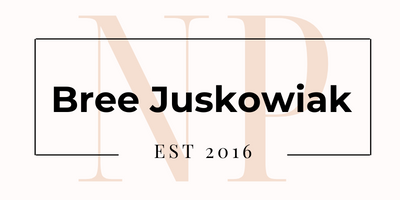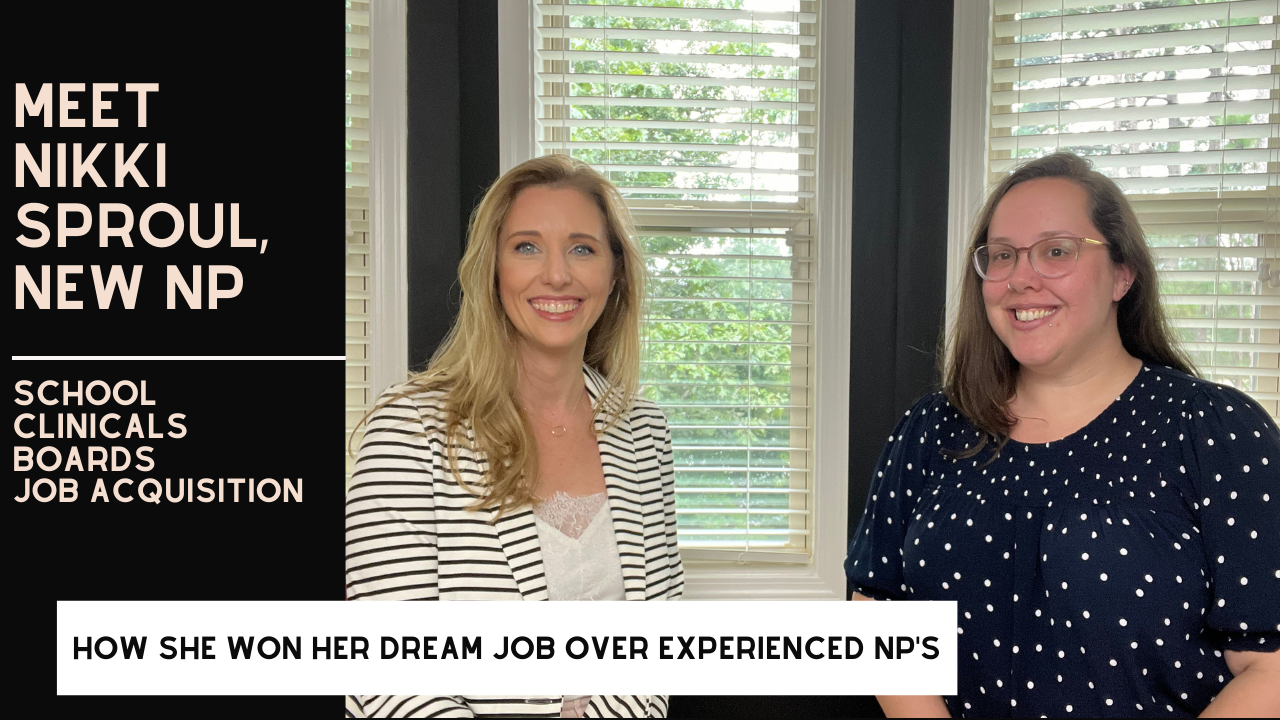How My Former NP Student Won Her Dream Job
This isn’t exactly my story to tell, but since she agreed to do a Youtube interview I figure this is fair game to share here as well. It’s important because the steps she took were impressive and who doesn’t love an underdog story. (I’m going to call her an underdog only because this is a very competitive market and for a new grad to beat experienced NP’s out for a spot- it’s impressive). I’m going to give you the exact blueprint she used so you can adapt it for yourself.
“In the period 2010–17 the number of NPs in the US more than doubled from approximately 91,000 to 190,000.”
https://www.healthaffairs.org/doi/abs/10.1377/hlthaff.2019.00686
And those are pre-covid numbers. This post isn’t designed to eschew the pros and cons of NP saturation, merely to bring awareness to the growing problem of geography distribution favoring difficulty in job acquisition for inexperienced providers in urban regions. It’s a giant hurdle for those not able to relocate.
So the fact that this brand new NP outperformed her experienced peers in her interview process is pretty profound. Now having said that, there are places who desire new grads for their affordability and mold-ability, but can we agree that most employers desire previous experience?
Back to the story. Nikki didn’t have it easy. A full time working RN with two young children with not a lot of time but a lot of passion. She went about it the right way, for the right reasons, and illustrated it exceptionally well for future employers. There are no easy answers here friend, it starts from the very beginning: from choosing good schools, good clinicals, on a background of good experience with passion for your intended career path. Here are the failings I see that hinder many folks:
They don’t work at the bedside long enough.
They pick a poor school with a poor reputation and follow that with poor effort.
They don’t have a vision when returning to school. It’s not because they desire to interact with patients in a different role, or a passion of understanding medical diagnoses, or offering treatment plans. It stems from a place of I don’t like bedside anymore or I want to make more money than I do now or I don’t know what’s next but this seems right.
They don’t gather good data while in clinicals ( more details below).
They don’t know how to network and leverage relationships for job acquisition.
They don’t interview well.
Nikki was a former cardiac care unit nurse who went to school for AGACNP and completed extensive clinicals in a variety of foci all supporting a strong foundation in critical care which was always her goal. Here are the steps she took to build her expertise despite a lack of experience:
She spent time at the bedside and became an expert in her specialty. She developed a reputation as one of the best nurses around. She asked higher level questions in rounds, she exhibited expertise in identifying and stabilizing sick patients, she became the best in her craft. People notice these things y’all!! Way more than you think. So then when you need clinicals or a letter of reference you have an army of people to choose from.
She made a choice in her schooling that I would not have supported. She chose a lower tier school. Now, I definitely would not say it was a diploma mill, but in my day this school was one that I heard employers say they threw out resumes from. I believe after seeing some of the rigor they required of her that this may have since changed. Having said that, at the time she knew her school choice would be a risk, but she leveraged her passion, committment, performance in clinicals, and previous experience to help her stand out and it paid off for her. Some people can get away with this. For most, I advise the most reputable, rigorous school you can afford.
She observed various NP roles and knew before going back that her top choice would be critical care. She knew it would be a long shot but built a resume of clinical rotations supporting this goal. She was willing to take a job in a less competitive specialty and was committed to making it work. Knowing her work ethic I’m sure she would have excelled in anything she put her mind to. But the key is she was willing to do it. If you let people know what your goal is you’d be surprised how many are willing to help you get there. Sincerity and passion bleed through. Otherwise you come across as someone willing to do anything. Now I know I’m contradicting myself telling you not to do this, but the reality is you should prepare for the worst case scenario while sharing your passion for whatever your passion is.
She gathered every bit of kudos she had, both as a bedside nurse and in clinicals. She collected emails from supervisors, the write up for her daisy award nomination, asked every clinical preceptor to write her a reference letter. She saved procedure logs. She saved patient distribution logs to illustrate what type of patients she cared for during clinicals.
She asked everyone she knew if they had job openings. She networked while in clinicals and after. She took a prn job at a different hospital for the purpose of extending her networking (and this is what paid off). She got very good at the art of selling herself.
She took all the data from #4 and created a portfolio. After she used her network to land a job interview she presented the portfolio. She researched and prepared how to interview and practiced a lot. She went into her interview prepared to illustrate (clearly) for them why she is the best candidate for the job. They initially told her they were considering a candidate with experience but later came back and said that her passion and clear demonstration of trainability and commitment won them over.
This, my friends, is why I don’t say that the market is saturated. Is it competitive, yes it absolutely is - in most places. But, if your motives are pure and your commitment to doing it the right way is strong, there is absolutely a place for you.


